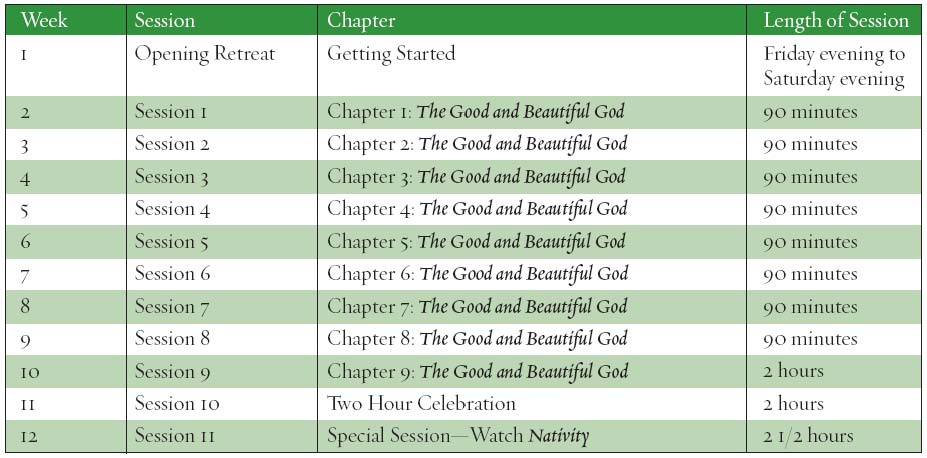 James Bryan Smith. The Good and Beautiful God: Falling in Love with the God Jesus Knows. InterVarsity Press, 2009. ISBN: 9780830835317.
James Bryan Smith. The Good and Beautiful God: Falling in Love with the God Jesus Knows. InterVarsity Press, 2009. ISBN: 9780830835317.
Meet the Author
James Bryan Smith is an ordained United Methodist minister who specializes in spiritual formation. He has been associated with Friends University for over twenty years and currently serves as the Director of the APRENTIS Institute for Christian Spiritual Formation and as Assistant Professor of Religion. Smith is a founding member of Renovaré and has served in various capacities in local churches. He has written several books including the three volume Apprentice Series: The Good and Beautiful God: Falling in Love with the God Jesus Knows (2009), The Good and Beautiful Life: Putting on the Character of Christ (2010) and The Good and Beautiful Community: Following the Spirit, Extending Grace, Demonstrating Love (2010).
Book Basics
After teaching spiritual formation for twenty-five years in both university and parish settings, Smith wrote the Apprentice Series to share that material with a wider audience by creating a “curriculum for Christlikeness” (p.14). The curriculum was developed as a result of those formal teaching experiences, personal spiritual training, and interactions with Richard Foster, Henri Nouwen, Rich Mullins, Brennan Manning and Dallas Willard.
The Good and Beautiful God seeks to “help people discover the God that Jesus revealed” by exploring many false but commonly held perceptions and comparing them to the “narrative of Jesus” (p.14). The book is written to be read over an extended period of time and ideally studied in a small group. To facilitate group discussion the book includes a Small Group Discussion Guide as an appendix (written by Matthew Johnson and Christopher Jason Fox) and an online Leader Guide (written by Matthew Johnson). A sample group study schedule follows (Discussion Guide, p.2):
The Good and Beautiful God is an orthodox and pragmatic introduction to a God who is good, trustworthy, generous, love, holy, self-sacrificing, and who transforms. For Christians who have been on the journey of faith for any length of time very little of the material in any chapter will be new, but all of the material has the ability to become more meaningful and transformational if the reader engages in “soul training” exercises that are found at the close of each chapter.
So What?
Adult Christian formation goes by many names including Christian education, spiritual formation, and religious education. In mainline denominations this aspect of the journey of faith is under-emphasized in the culture of many parishes through the creation of growth groups, Sunday school classes, seminars and lectures, which suggest that it is an optional rather than essential component of living the faith.
- Is adult Christian formation for all a part of your congregation’s DNA? If so, how is it expressed throughout the life of the parish? If not, how can the Senior Pastor and other key leaders provide an appropriate emphasis to begin shifting the culture?
- How do you create an environment that promotes both intellectual inquiry (learning facts) and experiential exploration (living out what is being learned)?
